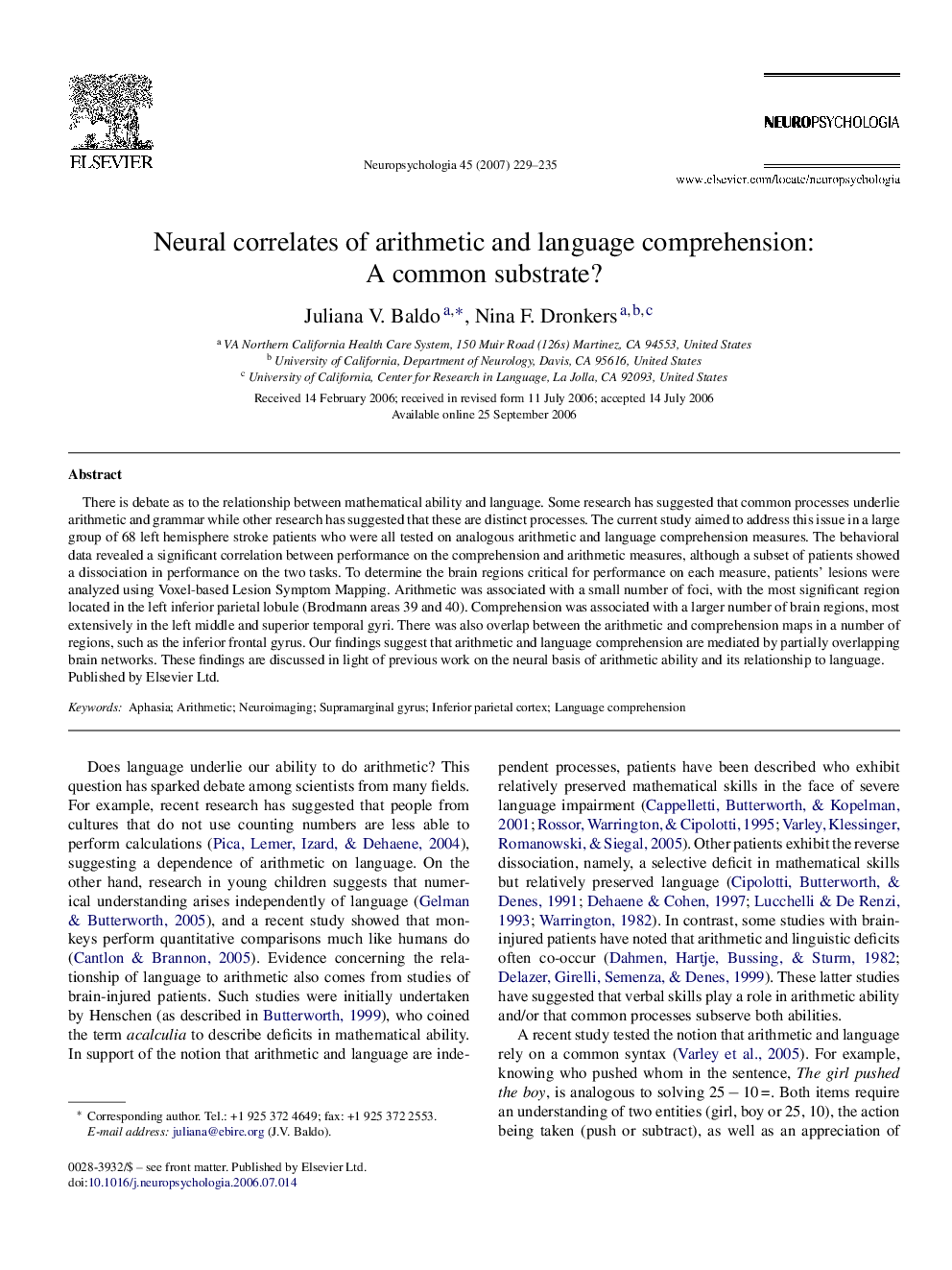| Article ID | Journal | Published Year | Pages | File Type |
|---|---|---|---|---|
| 10467040 | Neuropsychologia | 2007 | 7 Pages |
Abstract
There is debate as to the relationship between mathematical ability and language. Some research has suggested that common processes underlie arithmetic and grammar while other research has suggested that these are distinct processes. The current study aimed to address this issue in a large group of 68 left hemisphere stroke patients who were all tested on analogous arithmetic and language comprehension measures. The behavioral data revealed a significant correlation between performance on the comprehension and arithmetic measures, although a subset of patients showed a dissociation in performance on the two tasks. To determine the brain regions critical for performance on each measure, patients' lesions were analyzed using Voxel-based Lesion Symptom Mapping. Arithmetic was associated with a small number of foci, with the most significant region located in the left inferior parietal lobule (Brodmann areas 39 and 40). Comprehension was associated with a larger number of brain regions, most extensively in the left middle and superior temporal gyri. There was also overlap between the arithmetic and comprehension maps in a number of regions, such as the inferior frontal gyrus. Our findings suggest that arithmetic and language comprehension are mediated by partially overlapping brain networks. These findings are discussed in light of previous work on the neural basis of arithmetic ability and its relationship to language.
Keywords
Related Topics
Life Sciences
Neuroscience
Behavioral Neuroscience
Authors
Juliana V. Baldo, Nina F. Dronkers,
